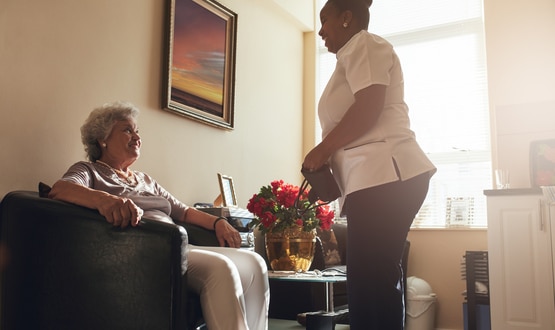Portal to solve social care problems
- 11 July 2012

The government has reiterated its commitment to create a new national information website for health and care in the social care white paper, published today.
‘Caring for our future: reforming care and support’ says the site will combine the best of national online services such as NHS Choices and NHS Direct, along with information about care and costs from local authorities.
The recent ‘Power of Information’ information strategy for the NHS was enthusiastic about using portals to share information between professionals and patients.
It promised to create a My Health site that will be taken forward by the NHS Commissioning Board.
The social care white paper says the site will “provide a clear and reliable source of information on care and support.”
The paper, which was unveiled by health secretary Andrew Lansley alongside some funding announcements and a draft bill, follows on from the Dilnot report last year.
The economist, Andrew Dilnot, was asked by the government to examine the future for social care and options for funding it.
The government rejected Labour plans for a new, national care service, to be co-funded by the state and individuals through a one-off payment that could be made at retirement or from a person’s estate.
During the general election campaign, the Conservatives dubbed the Labour plans a ‘death tax’ – but Dilnot came up with similar measures, while proposing that the total cost of care for an individual should be capped at £35,000.
After a year of talks with people both inside and outside government, Lansley said the proposals were the “right basis” for change – but he could not yet fully commit to them. A final decision will be taken by the next spending review, which could be two years away.
Lansley did announce that the government would consider a voluntary scheme through which elderly people will be able to “opt in” to a government social insurance scheme.
This would allow people to pay premiums to the state to insure against the future costs of care and accommodation, which would also be capped.
Critics argue the system cannot work without universal coverage, since some of the people most likely to need support will be unable to afford the scheme.
Despite the delay on funding, Lansley was able to announce a series of other changes including the creation of a the portal next year.
Alongside health resources, the site will provide an explanation of how the care and support system works, who might be eligible for financial support from the state, and how much care costs.
As part of this information offering, the white paper says that the NHS 111 service will help to signpost callers that may also have social care needs to their local authority.
The government has also committed to explore with current NHS 111 providers future developments that “support further integration” as the service is rolled-out across England in 2013.
The site will contain a “comprehensive national, easy-access directory of care providers within the portal”, which will include greater information on the quality of care providers through the new provider quality profile.
The government expects all local authorities to “radically” improve their online information, developing new online services that provide people with more consistent and accessible information about their local care and support options. Funding of £32.5m will be available over two years from 2014-15.
The paper also reiterated the DH’s desire to take forward the 3millionlives campaign with industry bodies.
This has been set up to accelerate the roll-out of telehealth and telecare in the NHS and social care over five years, by stimulating the market.




